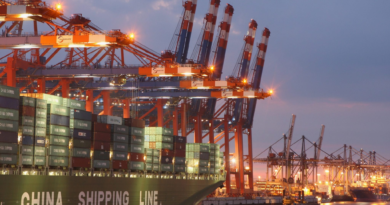A new global study shows the real reason the West is still one step ahead of Asia when it comes to the digital economy–and it’s not technological prowess
Few can question Asia’s commitment to digitalization. Leading technology nations in East Asia, including Japan, South Korea, and China have consistently produced great technology companies. Korea’s Samsung continues to lead the world in mobile technologies and Japan’s Sony has emerged as a global leader in gaming. China has produced a host of leaders in the digital economy including Tencent, Xiaomi, and Alibaba to name a few. More recently, India emerged as a leader in digitalization on the back of the India Stack–a unique national public digital infrastructure that facilitates the democratization of digitalization through an open model of private partnerships. The India Stack was highlighted by Prime Minister Modi during the recently concluded G20 Summit in New Delhi as a unique contribution of the country to the world.
However, despite a widespread commitment from many economies in the East to a more digitally intensive future, they fall short of their Western counterparts.
Our latest Network Readiness Index report, which evaluates 134 economies based on a wide range of factors related to their readiness to harness the benefits of the networked digital economy, all but confirms this. The U.S. finds itself in first place for the second year running, and European nations comprise seven of the top 10, and 16 of the top 25 countries ranked.
By comparison, Singapore and the Republic of Korea are the only economies located in Asia listed within the top 10–two of only five from the Asia Pacific region ranked among the top 25. Singapore, for the second year running, has ranked second globally, and the Republic of Korea has climbed two places from last year, up from ninth to seventh. Meanwhile, China continues its forward path, securing this year a spot in the top 20 (ranking 20th) due to its formidable technological prowess.
India, ranking 60th globally, progresses at a steady pace, and China has outperformed what many would expect of an economy with its income levels. That said, the results of this year’s NRI underscore a sobering fact: Western nations continue to lead the way in a world that is becoming more digitally intensive every day.
So, what is it about economies in the West that gives them an edge in the digital economy? Findings from the NRI confirm that technological excellence–while necessary–alone is not enough.
Yes, leading Western nations do excel in technology. The United States, for example, leads investment in emerging technologies, computer software, and telecommunication services. Similarly, the U.K. (10th) ranked among the top 10 in part because of significant spending in relation to computer software. Many Western European nations also lead in technological prowess.
However, if it is simply a matter of investment, why haven’t economies such as the UAE and Malaysia–both of which scored well for investment in new technologies–ranked higher overall? It comes down to an important observation: The top-performing economies in the NRI invest not only in the realm of technology, but also in social dimensions like inclusivity and trust, which are critical to the successful roll-out and usage of technology resources within their societies.
The U.S., the top performer in future technologies, also leads in cybersecurity and e-commerce legislation. These results underscore the importance of trust in the uptake of emerging technologies by businesses and governments–areas where many Asian economies fall short in the rankings.
The NRI also notes that the governance of emerging technologies in the East remains in the shadow of European nations such as Finland, the Netherlands, and Denmark. These nations continue to set the global standard in regulation, an area where China, in particular, finds itself in the lower half of the rankings. European nations have been better able to implement mechanisms that address issues related to trust, security, and inclusion, allowing them to more fully harness the opportunities brought about by the digital era.
In other words, the most network-ready economies excel due to a harmonious integration of people and technology. They possess cutting-edge technological infrastructure, a highly skilled and adaptable workforce, efficient governance structures capable of managing digital transformations, and the ability to harness digital technologies for positive societal impact.
The West can hardly pause in continuing to invest in technology. It is playing catchup to the East in some key technology domains such as semiconductors and solar technologies. Countries in the East such as China, The Republic of Korea, and Japan are world-leading in key areas like robot density and high-tech and medium-high-tech manufacturing.
At the same time, the West must continue to lead in rolling out trustworthy and inclusive digital infrastructures in business and society. Recent efforts by governments in the U.K. and the U.S. to better regulate new technologies such as artificial intelligence are moving in the right direction. Investment in skills and the upgrading of digital capabilities in small and medium-sized businesses should be a priority for the West.
We know the value of digitalization to an economy: productivity, sustainability, and general prosperity. This year’s NRI offers us an opportunity to look deeper into the strengths and weaknesses of an economy’s approach to digital transformation and technological success. It is the lens through which we can see what gives Western–and often European–economies a technological edge at a time when digital capabilities have never been more important.
Professor Soumitra Dutta is a co-editor of the Network Readiness Index and the Dean of Saïd Business School, University of Oxford.
More must-read commentary published by Fortune:
The opinions expressed in Fortune.com commentary pieces are solely the views of their authors and do not necessarily reflect the opinions and beliefs of Fortune.



